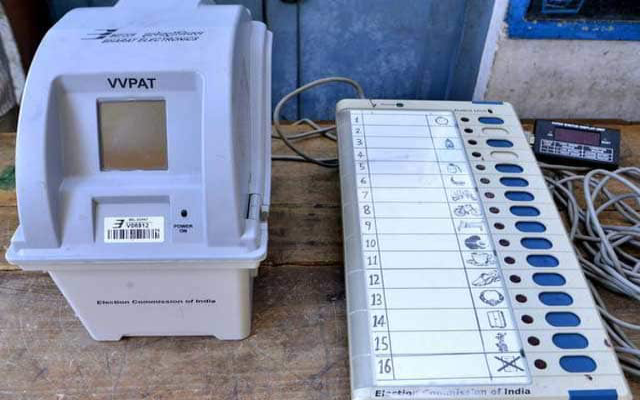The country is voting in the second phase of the 2024 Lok Sabha election this morning, and in a major development, the Supreme Court has given Electronic Voting Machines, or EVMs, a big vote of confidence. Petitioners seeking 100% voter verifiable paper audit trail (VVPAT) verification of votes cast on electronic voting machines were denied by a two-judge bench.
We have thoroughly discussed all technical and protocol-related issues, and we refuse all requests. Rejecting a plea to go back to paper ballots, Justices Dipankar Datta and Sanjiv Khanna stated that “blindly mistrusting a system can lead to unwarranted suspicions.”
Nonetheless, the Election Commission received two orders from the court in this respect.
Supreme Court’s Directions On VVPATs, EVMs
The first was that after completing loading of symbols into the machine, the SLU, or symbol loading unit, should be sealed and stored for a period of at least 45 days.
Specifically, the court said “on completion of symbol loading process in EVM, undertaken on or after June 1 (the final phase of polling), the SLU should be sealed and secured…”
The SLU storage containers must be sealed and the seal is to be signed by candidates.
“The sealed containers containing the SLUs shall be kept in storerooms, with the EVMs, (for) at least for 45 days post declaration of results,” the court explained.
The second was that if candidates requested it, an engineering team would have to examine the burned memory in the EVM microcontroller EVM after the results were announced.
The court stated that this request, which may be submitted by the runners-up and runners-up in the election, needs to be submitted within seven days of the results being announced.
The candidate will be responsible for covering the costs associated with this verification, the court further stated. In the event that it turns out that the EVM has been tampered with, the money will be reimbursed.
Additionally, the Election Commission was advised by the Supreme Court to investigate the possibility of counting VVPAT slips by machine. At present, each Assembly segment’s five randomly chosen EVMs’ VVPAT slips are validated.
VVPAT Directions
The VVPA is an independent system attached to the EVM that allows voters to check if their votes were cast as intended. When a vote is cast, a slip is printed containing the serial number, name and symbol of the candidate, and this is shown to the voter – from behind a transparent screen – for seven seconds, after which the machine stores it in a sealed box.
In the event of alleged discrepancies, the paper slips can be cross-checked against the votes recorded electronically to see if the declared result is, in fact, valid.
During the hearings, the poll panel explained that there is a 4MB flash memory in each VVPAT machine which stores the party symbols.
This unit, or the SLU, will be kept in locked storerooms with the EVMs, the court said.
EVM Unit Explained
The voting unit and the control unit are the two components of an EVM.
There is a cable connecting these. While the voting unit is kept where votes are cast and is typically covered on all sides for privacy, the control unit is with the poll worker.
Every significant part of the EVM has a unique microchip.
Since each microchip is a one-time programmable, or masked, chip that cannot be overwritten, it is impossible to reprogram the preloaded software in any way.
Also, all EVMs are stand-alone machines that are not remotely via any network, and are not connected to any external devices. There is also no operating system, or OS, and, therefore, “absolutely no chance of programming EVMs to select a particular candidate or party”.
The VVPAT Case
The bunch of petitions before the court had sought a direction to cross-verify every vote cast on EVMs with paper slips generated by the VVPAT system. The court earlier said it was not the controlling authority for elections and could not dictate the functioning of the poll body, a constitutional authority. It had also wondered if it can act on mere suspicion.
Responding to concerns raised by Advocate Prashant Bhushan, appearing for petitioner Association for Democratic Reforms, the court said in the last hearing, “If you are predisposed about a thought-process, then we cannot help you… we are not here to change your thought process.
Read More
Fact Check: Old Video Mislinked to 2024 Polls
















